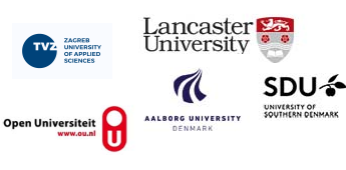

Scope of Virtual Reality (VR) Based Disaster Preparedness Training for the Less Literate and Illiterate People
Syed Tarek
Earth Aid, London, United Kingdom.
Keywords
Virtual Reality (VR), Disaster preparedness, Disruptive Learning, Training In A Tab, Rapid ethnography
Abstract
Virtual reality (VR) has evolved over the past decade, and as this evolution continues, scope and significance of using VR in various educational settings are worth exploring. With the availability of low-cost Google Cardboard VR tool and emergence of affordable smartphones, the possibility of creating a participant-centric virtual reality learning environment even in developing countries is not unthinkable. However, there remains a void in the adaptation of the VR based tools in the developing countries. As of today, no initiatives are taken to create a learning setting which would allow less literate and illiterate people to overcome some of the evident curses of illiteracy through planned elevated use of other senses such as vision and sound.
To contribute to this identified void, the author conducted two iterations of small-scale fieldwork where VR based technology was used alongside the author’s existing ‘Training in a Tab' project. In this project, a tablet device based disaster preparedness training was provided to the technologically disadvantaged, predominantly less literate and illiterate group of people. In 2016, a pilot study was conducted at Uthali Village located in the Manikganj district, Dhaka division, Bangladesh followed by a post-pilot scaling study in 2017, conducted in the Teknaf Subdistrict, Chittagong division, Bangladesh.
Findings from the fieldwork suggest VR based system can be compatible with the existing practices and it is possible to use the VR based system to enhance the learning process in a social setting. From a pioneering initiative to integrate VR within a less literate population, this paper contains a brief record of the use of VR in disaster preparedness settings, sets out the rationale for using this in the developing countries, provides an introduction to possible methods that can be used in the fieldwork. The early findings of both studies affirm VR based system’s possibility in stimulating ‘disruptive learning' among the targeted less literate population which can lead towards long-term change in the participants' perspectives on disaster awareness and can make them further interested in learning more about disaster preparedness. Despite the concerns with localised content creation, the findings will be able to guide future researchers who might want to create VR based training for a similar population.
Joint Organising Institutions
Open University of The Netherlands
| Past Conference Proceedings | Contact |